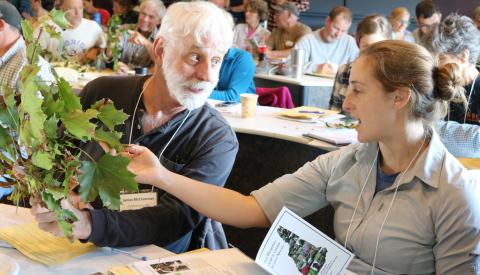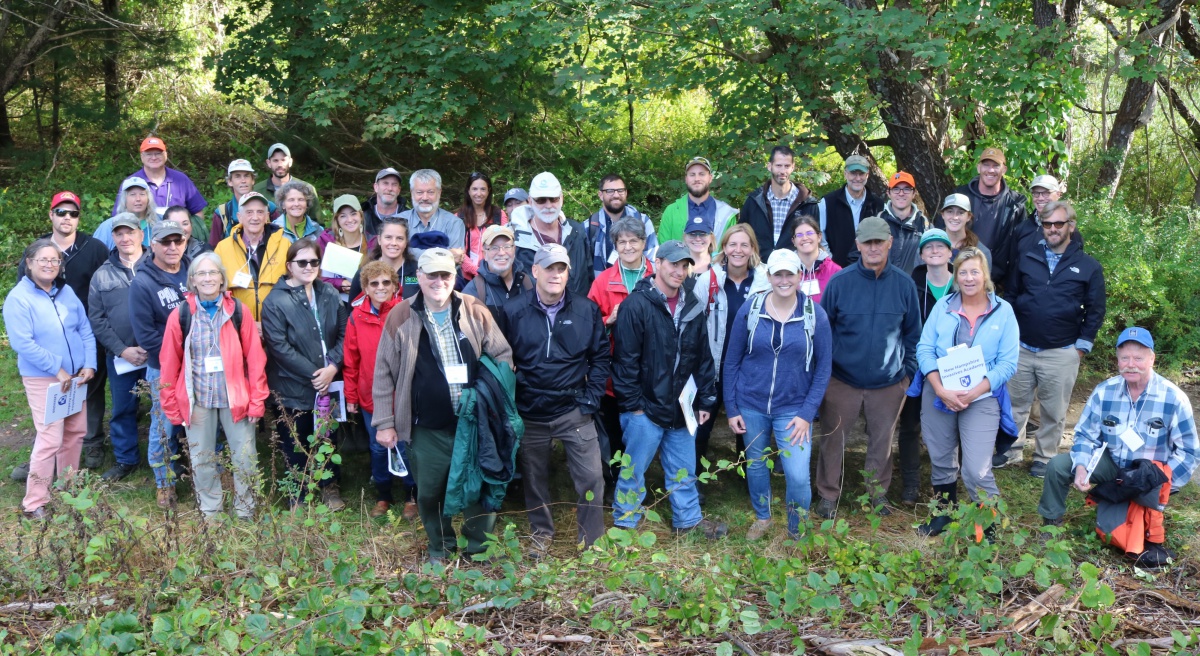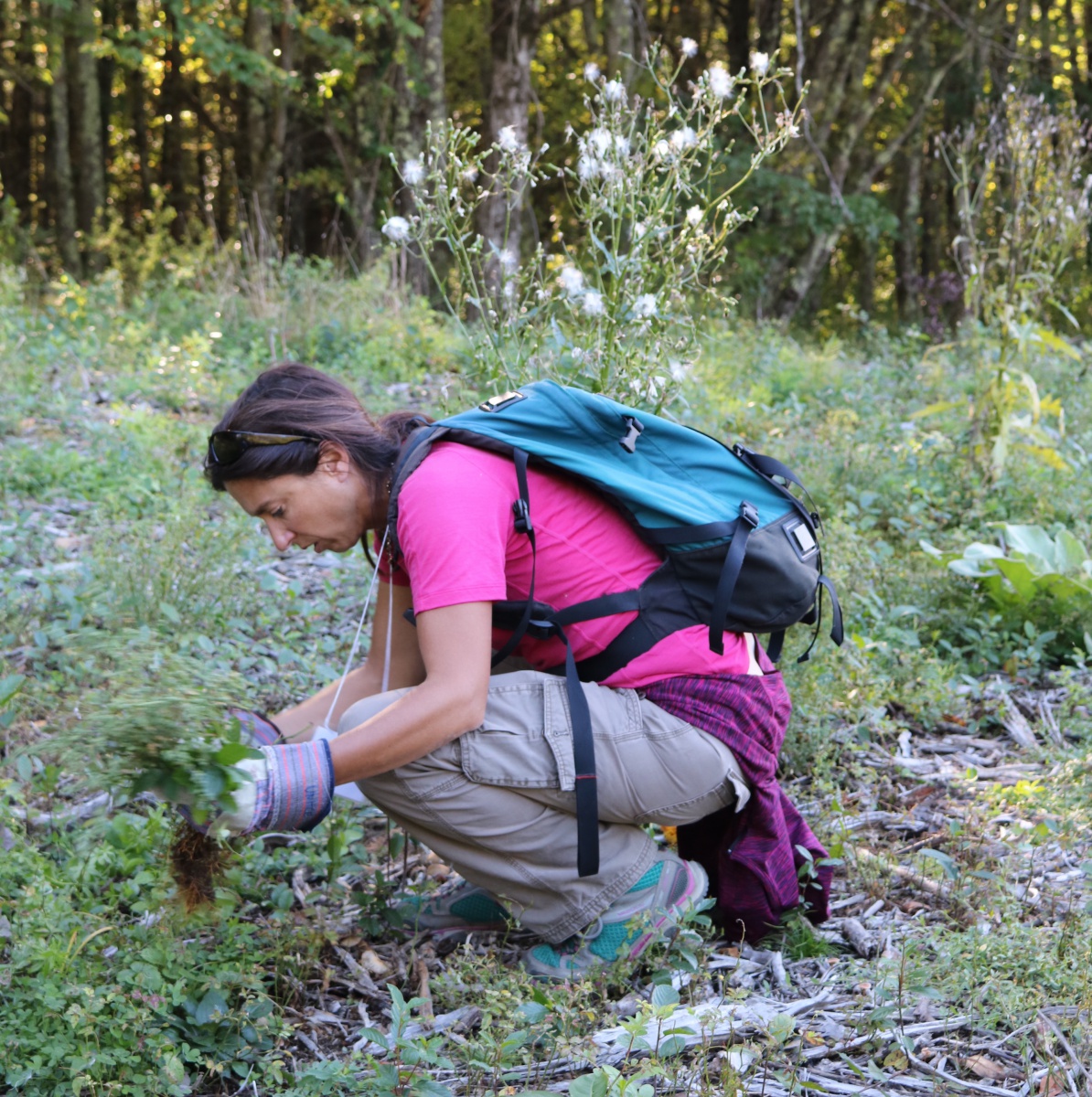Getting a Hold on Invasives Plants

In late September, the fields and forests of Odiorne State Park were crawling with adults carrying white clipboards. "Is this one of the new native plants?" someone asked, pointing to a young green plant that is nearly indistiguishable from the other vegetation.
"Yes, that's bayberry we put in last year. It's doing pretty well here, isn't it?" replied Tracy Degnan, one of the field trip leaders for the day.
Degnan was part of a team of instructors at the first-ever New Hampshire Invasives Academy, a special workshop hosted by UNH Cooperative Extension on Sept. 27-28 at Odiorne State Park in Rye. "The mix of participants made for great conversations and excellent questions," Degnan said after the program.

Forty participants from a variety of professions and backgrounds attended the two-day academy, including foresters, land trust staff, conservation commissioners and other volunteers, landscaping professionals, engineers and public agency staff. "This was probably the widest mix of professionals and volunteers that I've ever had attend a workshop," remarked Haley Andreozzi, one of the UNH Extension staff who coordinated the workshop. "People with different backgrounds bring different perspectives, and that's always a good thing in a workshop."
Invasive plants take over the landscape and cause harm to native plants, wildlife and crops. The NH Invasives Academy brought together researchers, educators, agency staff and consultants for presentations on and discussions about invasive plant ecology, management and research in New England. How to control invasive plants was a driving question for many participants, and the workshop covered planning invasive plant projects, available control options, and potential impacts on wildlife, forestry and native ecosystems.
The field trip to Odiorne State Park offered an example of what a multi-year, extensive invasive plant management project can look like. "It's incredible how the restoration efforts are changing the plants and ecosystems of the park," said Degnan, who has helped implement many of the invasive control projects at the park. Restoration efforts have been going on since 2009, aimed at restoring native plants to those outlined in a plant survey the park has from 1972, before invasive plants started to take over the park. "The native ecosystems are responding nicely," says Degnan. "A few years ago, this site was completely engulfed in Japanese honeysuckle, and now look at it," she said, pointing to a coastal shrub thicket where native plants are now thriving. The contrast to historic photos Degnan handed out was striking and impressed on academy participants restoration and management possibilities.
"It's amazing to see a project that actually worked," remarked one participant. "I'm inspired to give it a try now that I see the possibilities."
The unique workshop format included classroom sessions and field trips. The academy also asked participants to commit to volunteering within the next year. "We're hoping to create a new network of knowledgeable people who understand invasive plants and management concepts well enough to share their knowledge with others," said Malin Clyde, an Extension specialist who helped coordinate the academy. "All the participants created their own plan for how they want to share what they learned with clients, colleagues, students or members of their community."

Work has already begun on planning the next Invasives Academy workshop in 2019. Karen Bennett, a UNH Extension specialist in forest resources, explained that this was a pilot for future workshops: "The US Forest Service provided funding to test out our idea to create a trained network of professionals and volunteers who are motivated to take action on invasive plants issues," Bennett said. "We got great feedback after this workshop, which we'll be using to inform plans for a similar workshop in 2019."
Anyone interested in participating in future NH Invasives Academys can request to be added to the list to receive an application:
